What is Cystic Fibrosis?
Cystic Fibrosis is an inherited genetic disorder that affects the secretory glands and causes severe damage to the lungs, digestive systems, and other internal organs. In people with cystic fibrosis, secreted fluids such as mucus, sweat and digestive fluids are sticky and thick, instead of thin and slippery. Rather than acting as a lubricant, these thickened secretions clog tubes, ducts, and passageways. In the lungs—the organ most commonly impacted by cystic fibrosis— the abnormal mucus can obstruct airways, resulting in the chronic coughing, wheezing, inflammation, bacterial infections, and severe breathing problems. Over time, cystic fibrosis causes progressive damage to the respiratory and digestive systems.
People with cystic fibrosis have inherited two copies of a mutated cystic fibrosis gene, one from each biological parent. As cystic fibrosis is an autosomal recessive disease, it is possible to inherit only a single defective CF gene without developing the disease. About 30, 000 Americans suffer from cystic fibrosis, but at least 10 million more carry a copy of the defective gene.
Who does Cystic Fibrosis affect?
- Children: Cystic fibrosis is typically diagnosed in childhood as it presents itself at an early age. Though once considered a fatal disease, cystic fibrosis can now be managed with treatment and people with cystic fibrosis can live full lives into adulthood.
- Children born to CF carriers: Children born to parents who each carry the mutated cystic fibrosis gene have a one in four chance of developing the disease. Though you can test parents for the mutated cystic fibrosis gene, this would only be necessary if there was a family history of the disease on at least one side.
- Specific ethnic groups: Cystic fibrosis is most common among caucasians of northern European descent, Latinos and American Indians—specifically the Pueblo and Zuni.
If your child has been diagnosed with cystic fibrosis, one of our pulmonary pediatricians can work with you to develop a treatment plan that can begin minimizing the symptoms of the disease and slowing its advancement. If you or a loved are experiencing one or more of the symptoms below, consult with one of our pulmonary specialists to further explore your symptoms and test for the disease.
Cystic Fibrosis Symptoms
Respiratory Symptoms of Cyctic Fibrosis
- Persistent cough that produces sputum (thick mucus)
- Wheezing
- Breathlessness
- Exercise intolerance
- Repeated lung infections
- Inflamed nasal passages or a stuffy nose
- Digestive signs and symptoms
- Saltier-than-normal sweat and skin
Digestive Symptoms of Cyctic Fibrosis
- Foul-smelling, greasy stools
- Poor weight gain and growth
- Intestinal blockage
- Severe constipation
- Rectal prolapse
- Meconium ileus (when meconium gets stuck in a newborn’s intestine)
- Stomach pain or bloating
Other symptoms of Cyctic Fibrosis
- Infertility (mainly in men)
- Nasal polyps
- Hemoptysis (coughing up blood)
How to Diagnose Cystic Fibrosis:
- Newborn screenings: All newborns in the United States are screened at birth and the condition is often diagnosed within the first month of life.
- Sweat Test: If the aforementioned symptoms have been observed, a simple sweat test can confirm or refute diagnosis. A pulmonary specialist will trigger sweating on a small patch of skin, rub it with a sweat-producing chemical and use an electrode to provide a mild electrical current. The sweat is then collected and its salt levels analyzed. High salt levels confirm a cystic fibrosis diagnosis.
- Chest x ray: Pictures of the structures in your chest can illustrate whether your lungs are inflamed or scarred, or whether they trap air. Abnormal chest scans can be a sign of CF but your pulmonologist will advise you on next steps.
- Sinus x ray: This can indicate signs of sinusitis, a cystic fibrosis complication.
- Lung function tests: Measurements of how much air you can take in and out, and how well your lungs deliver oxygen to your blood can indicate lung health and the presence of cystic fibrosis. Learn more about Lung Function Tests here.
- Sputum culture: A sample of sputum (spit) is analyzed for the mucoid Pseudomonas bacteria. If present, this indicates an advanced form of cystic fibrosis that may need aggressive treatment.
Get more information on Cystic Fibrosis
For more information on how cystic fibrosis is caused and to better understand the disease, give Pulmonary Associates of Brandon a call to speak with one of our many pulmonary specialists; we have highly trained pulmonologists and pulmonary pediatricians who can answer your specific questions.
Sources:
http://www.marchofdimes.org/complications/cystic-fibrosis-and-your-baby.aspx
http://www.mayoclinic.org/diseases-conditions/cystic-fibrosis/symptoms-causes/dxc-20211893

